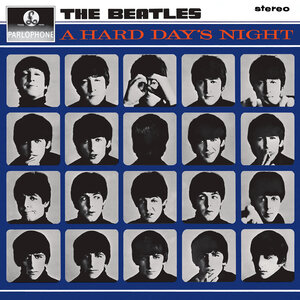
A Hard Day's Night is the third studio album by the English rock band the Beatles, released on 10 July 1964 by Parlophone, with side one containing songs from the soundtrack to their film of the same name. The American version of the album was released two weeks earlier, on 26 June 1964 by United Artists Records, with a different track listing including some from George Martin's film score. Unlike their first two albums, all 13 tracks on A Hard Day's Night were written by John Lennon and Paul McCartney.
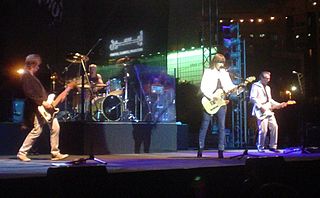
The Pretenders are a British-American rock band formed in March 1978. The original band consisted of founder and main songwriter Chrissie Hynde, James Honeyman-Scott, Pete Farndon and Martin Chambers. Following the deaths of Honeyman-Scott in 1982 and Farndon in 1983, the band experienced numerous personnel changes; Hynde has been the band's only continuous member.

Spin Doctors are an American alternative rock band from New York City, best known for their early 1990s hits "Two Princes" and "Little Miss Can't Be Wrong", which peaked on the Billboard Hot 100 chart at No. 7 and No. 17, respectively.

Joseph Fidler Walsh is an American guitarist, singer, and songwriter. Best known as a member of the rock band Eagles, his five-decade career includes solo work and stints in other bands: James Gang, Ringo Starr & His All-Starr Band, and New Zealand's Herbs. He was part of the supergroup The Best and had success as a solo artist and prolific session musician, appearing on other artists' recordings. In 2011, Rolling Stone ranked him No. 54 on its list of "100 Greatest Guitarists of All Time".
A mashup is a creative work, usually a song, created by blending two or more pre-recorded songs, typically by superimposing the vocal track of one song seamlessly over the instrumental track of another and changing the tempo and key where necessary. Such works are considered "transformative" of original content and in the United States they may find protection from copyright claims under the "fair use" doctrine of copyright law.
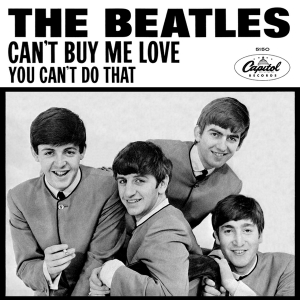
"Can't Buy Me Love" is a song by the English rock band the Beatles that was released in March 1964 as the A-side of their sixth single. It was written by Paul McCartney and credited to the Lennon–McCartney partnership. The song was included on the group's album A Hard Day's Night and was featured in a scene in Richard Lester's film of the same title. The single topped charts in the United Kingdom, the United States, Australia, Ireland, New Zealand, South Africa, the Netherlands, France and Sweden. In the UK, it was the fourth highest selling single of the 1960s.

Best of Bee Gees is a 1969 compilation album by the English-Australian rock band Bee Gees. It was their first international greatest hits album. It featured their singles from 1966–1969 with the exception of the band's 1968 single "Jumbo".

"Stuck in a Moment You Can't Get Out Of" is a song by Irish rock band U2. It is the second track on their tenth studio album, All That You Can't Leave Behind (2000), and was released as the album's second single on 29 January 2001. The band's lead vocalist Bono has said the song was inspired by a fictional conversation with his friend Michael Hutchence about suicide. The song peaked at number 52 on the US Billboard Hot 100 and topped the charts in Canada, their native Ireland, and Italy, while reaching the top 10 in Australia, Denmark, Finland, the Netherlands, Norway, Spain and the United Kingdom. In 2002, the song won the Grammy Award for Best Pop Performance by a Duo or Group with Vocal at the 44th Annual Grammy Awards ceremony.
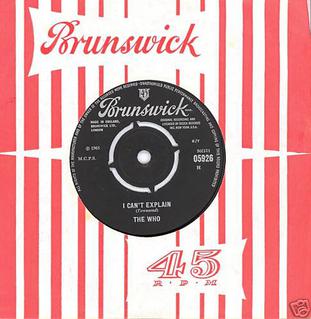
"I Can't Explain" is a song by English rock band the Who, written by Pete Townshend and produced by Shel Talmy. It was released as a single in the United States on 19 December 1964 by Decca and on 15 January 1965 in the United Kingdom by Brunswick. It was the band's second single release and first under the Who name.

"I Can't Tell You Why" is a song by the American rock band Eagles that appeared on their 1979 album The Long Run. It was written by band members Timothy B. Schmit, Glenn Frey and Don Henley. Recorded in March 1978, it was the first song finished for the album and the first Eagles song to feature Schmit on lead vocals. Released as a single in February 1980, it became a Billboard top 10 hit in April, reaching number eight on the Billboard Hot 100 and number three on the Adult Contemporary chart. It was the group's last top ten hit on the Billboard Hot 100.

The Honeycombs were an English beat group, founded in 1963 in North London, best known for their chart-topping, million-selling 1964 hit, "Have I the Right?" The band featured Honey Lantree on drums, one of the few high-profile female drummers at that time. They were unable to replicate the success of their first single and disbanded by 1967.
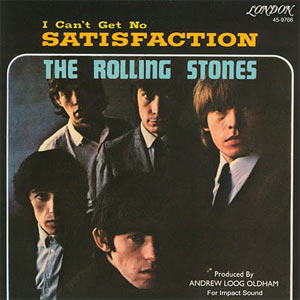
"(I Can't Get No) Satisfaction" is a song by the English rock band the Rolling Stones. A product of Mick Jagger and Keith Richards' songwriting partnership, it features a guitar riff by Richards that opens and drives the song. The riff is widely considered one of the greatest hooks of all time. The song's lyrics refer to sexual frustration and commercialism.
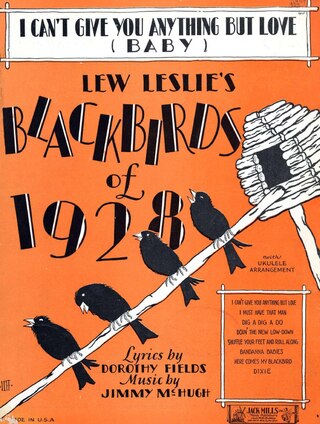
"I Can't Give You Anything but Love, Baby" is an American popular song and jazz standard by Jimmy McHugh (music) and Dorothy Fields (lyrics). The song was introduced by Adelaide Hall at Les Ambassadeurs Club in New York in January 1928 in Lew Leslie's Blackbird Revue, which opened on Broadway later that year as the highly successful Blackbirds of 1928, wherein it was performed by Adelaide Hall, Aida Ward, and Willard McLean.

All Eyez on Me is the fourth and final studio album by American rapper 2Pac to be released during his lifetime. Released on February 13, 1996,just 7 months before his death,by Death Row and Interscope Records, the album features guest appearances from Dr. Dre, Snoop Doggy Dogg, Redman, Method Man, Nate Dogg, Kurupt, Daz Dillinger, E-40, K-Ci & JoJo, and the Outlawz, among others.
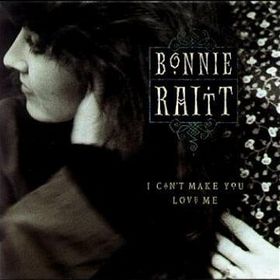
"I Can't Make You Love Me" is a song written by Mike Reid and Allen Shamblin and recorded by American singer Bonnie Raitt for her eleventh studio album, Luck of the Draw (1991). Released as the album's second single in 1991, "I Can't Make You Love Me" became one of Raitt's most successful singles, reaching the top-20 on the Billboard Hot 100 chart and the top-10 on the Adult Contemporary chart.

Stash is an EP released by Cypress Hill in 2002 and includes various, and mainly previously released remixes of their songs. The EP was heavily criticized for being censored for profanity.

"Can't Tell Me Nothing" is a song by American rapper Kanye West from his third studio album, Graduation (2007). The song contains additional vocals from Young Jeezy and Connie Mitchell. It was produced by West with DJ Toomp with West being responsible for 60 percent of the production. The song originated from Young Jeezy's "I Got Money", after West made changes to the track. On May 15, 2007, the song premiered via Hot 97 and was released by Roc-A-Fella and Def Jam that same day as the lead single from the album. A hip hop track, it was described by West as a theme song for the people. The lyrics see West reflecting on his fame while he expresses different types of feelings.
"Can't Get the Best of Me" is a song by American hip hop group Cypress Hill. The song was released as a single from the group's fifth studio album, Skull & Bones.
Igbo highlife is a contemporary musical genre which combines highlife and Igbo traditional music. The genre is primarily guitar-based music, with a rare characteristic blend of horns and vocal rhythms. Igbo highlife lyrics are sung mostly in Igbo with occasional infusion of Pidgin English. One of the most influential composers and performers of the music is Chief Stephen Osita Osadebe whose career spanned over 40 years. Osadebe's discography comprises numerous popular songs including the 1984 hit "Osondi Owendi" which launched him on the world stage as a pioneer of the Igbo highlife genre.
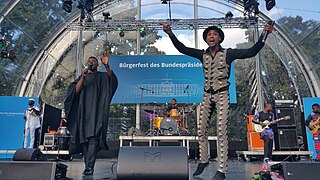
Bantu is a 13-piece band based in Lagos, Nigeria. Their music is a fusion of Afrofunk, Afrobeat, highlife and Yoruba music. The group features multi-instrumentalists and singers who perform as a collective.

















